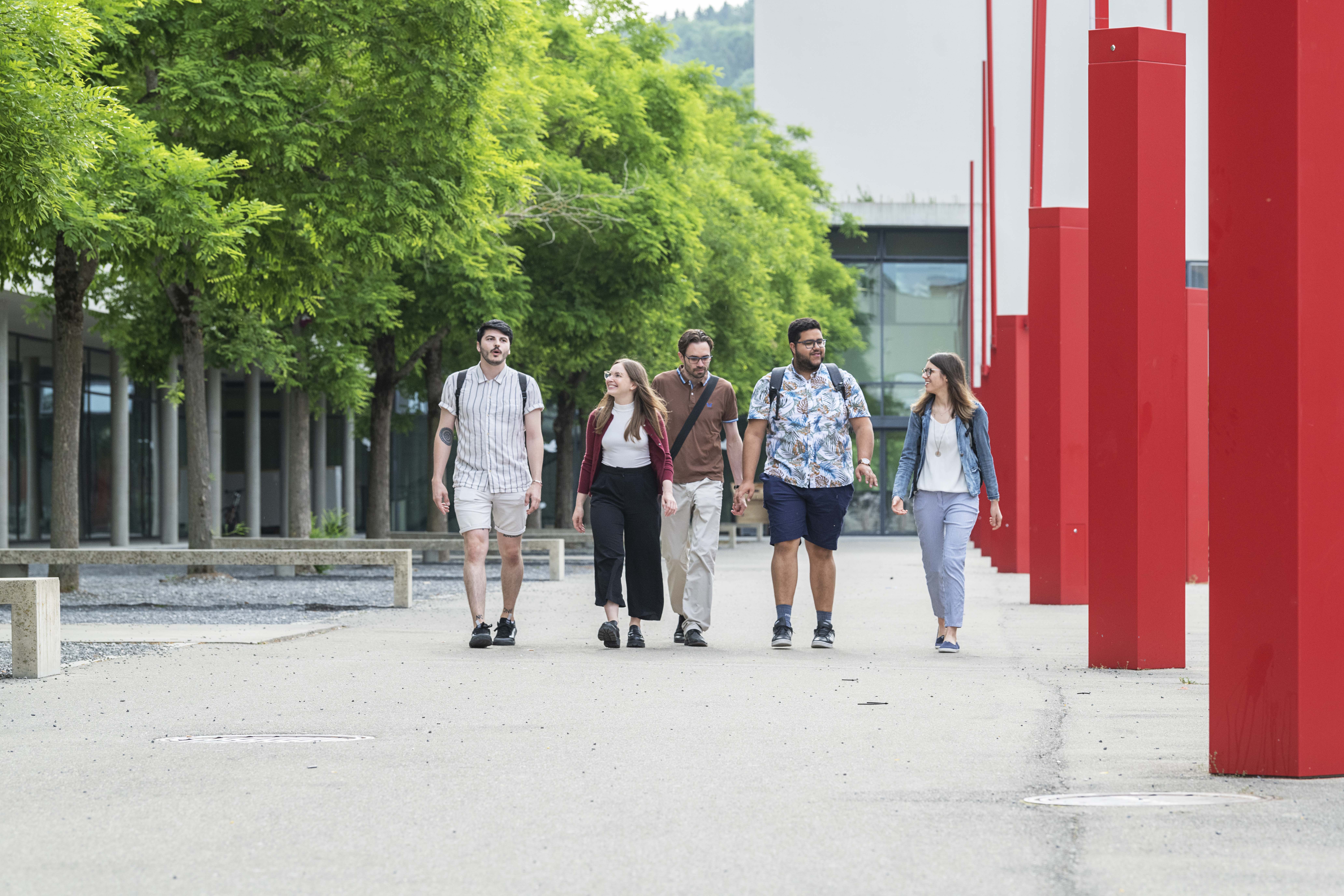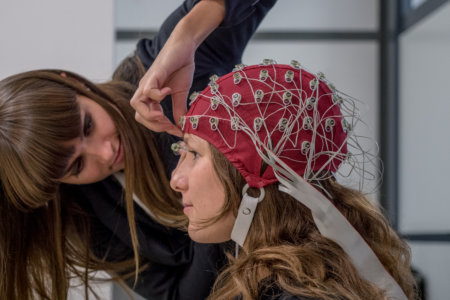Nestled amidst the foothills of the Swiss Alps, Fribourg captivates with its old facades, beautiful fountains and two local languages. On its three sides is the Sarine River, which surrounds one of the largest medieval towns in Switzerland — the home to one of the best universities in the country for international students: University of Fribourg.
Here, the town is your campus. You’ll attend lectures in historic buildings such as the old tram factory converted into the Department of Biology, grab coffee with classmates in charming cafes nestled between centuries-old shops, and immerse yourself in a community with 10,000 students making up a quarter of the population. The incomparable charm of the university town is matched only by what goes on within the university.
As Switzerland’s only bilingual university, Fribourg offers you a unique opportunity to hone your language skills in both German and French. The Bachelor programmes in science and medicine are all bilingual in French and German, while all Master programmes in Sciences are taught in English, except for the Programme in Sport Sciences, which remains in French and German.
And with students from over 110 countries, there’ll be many perspectives and insights that’ll challenge you as much as cultivate your global citizenship. You can collaborate with classmates from across the globe, hear their viewpoints and start friendships that transcend borders. Such international exposure will broaden your understanding of the world and prepare you for success in an increasingly interconnected society.

Film festivals, concerts, and outdoor activities fill the town’s social calendar. Source: University of Fribourg
Compared to other Swiss cities, living in Fribourg is significantly more affordable. You can find shared accommodation or student hostels at reasonable prices, allowing you to focus on your studies with fewer financial worries. Finding affordable housing close to campus has also been made easy in Fribourg. Several student housing organisations, such as Apartis, offer budget-friendly single person rooms, starting at around 365 Swiss francs (approximately US$415 at the time of writing) monthly. Here, a monthly budget of between 1600 and 1900 CHF (approximately US$1,619 to US$2,160 at the time of writing) covers all expenses including tuition, accommodation, food, transportation, and other essentials.
Accessibility is another perk of studying in Fribourg. Zurich and Geneva are less than 90 minutes by train and Bern is just a 20-minute ride away. Combine all these, and you’ll have a great time studying and living in Fribourg. “Fribourg offers the ultimate study experience: good courses, campuses, and student interaction,” student Mara Wehofsky says. “The possibility to study in three languages makes living here an experience, especially if you want to learn a new language, and the city offers a comforting living standard.”
Ready to Apply? Here’s what you need to know:
The Faculty of Science and Medicine offers master’s programmes in Exact and Natural Sciences, Human Medicine, Medical and Sport Science, and Digitalisation and Computer Science.
To join any of these programmes, you’ll need a bachelor’s degree (180 ECTS credits or equivalent and at least three years of study) from a recognised university. French and German are the primary languages of instruction for Bachelor, requiring a B2 level of proficiency. However, the master programmes, including Digital neuroscience, Environmental Biology, Molecular Life and Health Sciences, and many more, are taught in English.

All visa applicants are urged to submit applications by February 28 for the fall semester and September 30 for the spring semester. Source: University of Fribourg
Applications are accepted twice a year: from February 1 to April 30 for the autumn semester and from September 1 to November 30 for the spring semester. Visa applicants are strongly advised to submit their applications early: by February 28 for autumn and September 30 for spring. This is because processing times can take several weeks, and securing a residence permit requires an admission certificate and a two-month lead time.
Navigating the visa process: EU/EFTA vs. Non-EU/EFTA citizens
EU/EFTA citizens seeking studies up to 90 days within a six-month period can enter Switzerland visa-free. Stays exceeding this duration require registering with the cantonal authority and applying for a residence permit.
Non-EU/EFTA citizens must pre-apply for a visa with the Swiss diplomatic/consular mission in their home country. Visa processing typically takes eight weeks, and studying on a tourist visa is not permitted. Be prepared to present documentation regarding your financial resources, health insurance, study plan, language skills, and accommodation, along with other supporting documents requested by the authorities.
Interested? Click here to learn more about admission procedures to the University of Fribourg. To learn more about your visa application, click here.
Follow the University of Fribourg on Facebook, X, YouTube, LinkedIn, and Instagram












